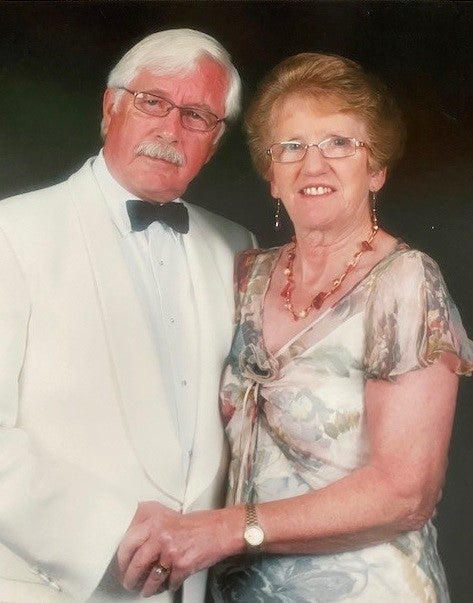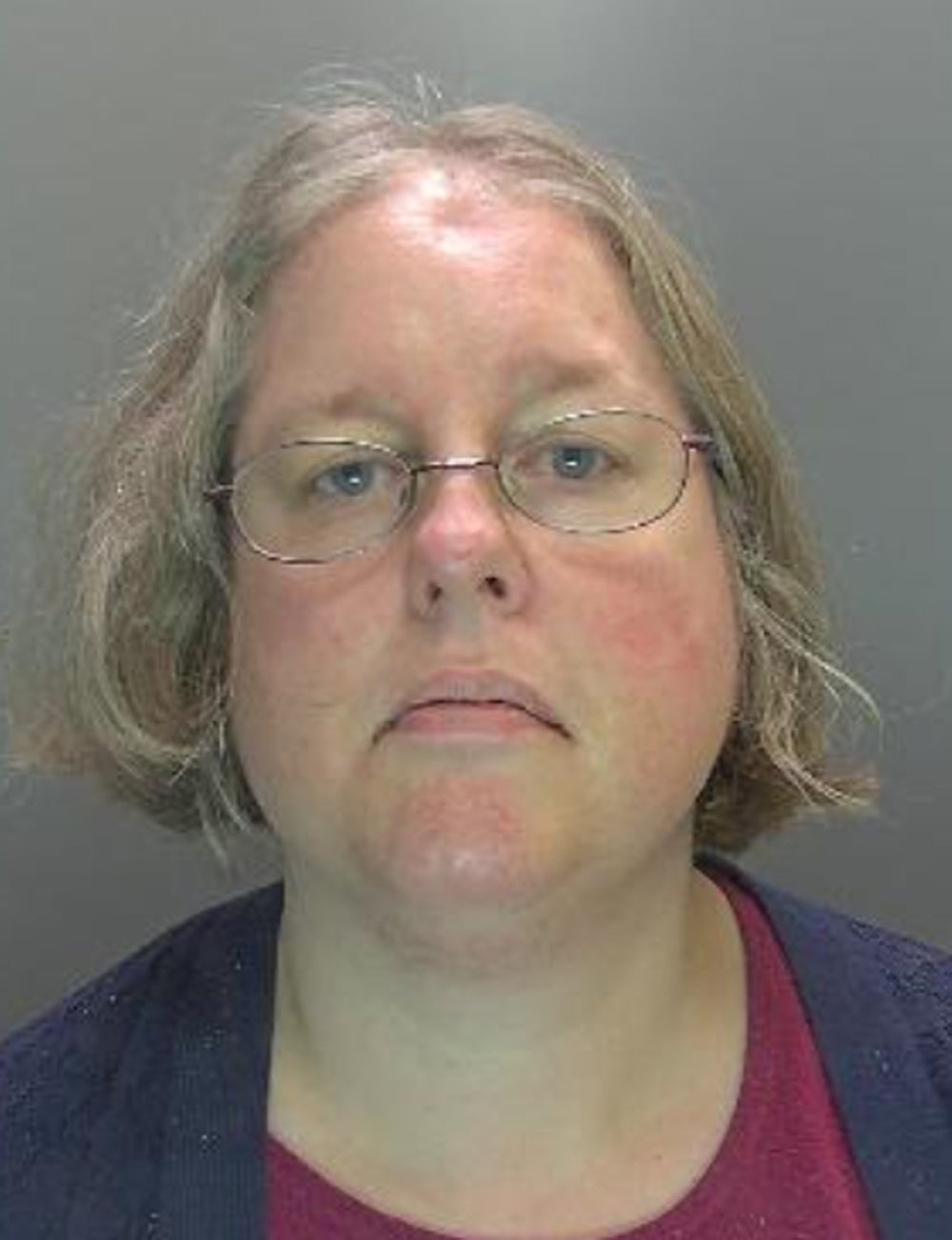Pedestrian who swore at cyclist and caused her to fall into path of car loses appeal bid
CCTV footage showed Auriol Grey, 49, shouting at retired midwife Celia Ward
A woman jailed for manslaughter after shouting at a cyclist who then fell into the road and was killed by an oncoming car has had an appeal against her three-year jail sentence rejected.
Auriol Grey, 49, shouted at retired midwife Celia Ward to “get off the f****** pavement” in Huntingdon, Cambridgeshire, causing her to fall into the road in an incident that was captured on CCTV.
Ms Ward, a 77-year-old grandmother of Wyton, Cambridgeshire, died after she was struck by a car on 20 October 2020.
Judges ruled that Grey’s sentence was not excessive – despite her suffering with disabilities.
In an interview with police following the incident, Grey told officers she believed that cyclists should “purely” stay on the road and not the footpath.
Grey denied manslaughter but was found guilty after a retrial at Peterborough Crown Court and was jailed for three years in March.
She has cerebral palsy and partial blindness, and her lawyers argued that the sentence was “excessive”, adding that an autism diagnosis secured after her trial may have made a difference in her case.
But Mr Justice Griffiths, sitting with Lord Justice William Davis and Judge Neil Flewitt, refused to grant permission for Ms Grey to appeal against her sentence, concluding it was “not arguably manifestly excessive”.

He said the sentence passed “had to mark the gravity of the unlawful killing” while taking into account mitigating factors, such as Grey’s disabilities.
Miranda Moore KC, representing Grey, in the “very unusual” case, earlier told the court that a suspended sentence would have been "appropriate".
The court heard that the issue of autism “only raised its head” after Grey’s sentencing, with a subsequent psychologist report placing her within the “autism spectrum” and saying she had a “limited understanding of her own emotions”.
Ms Moore said autism can give someone “fixed views” and that an autistic person does not like people being close to them.
“This was a lady being sentenced as an aggressive and territorial pavement user and it was her aggression and territoriality which made her behave in the way that she did,” Ms Moore said.
“Having read this report with her diagnosis, that is so much more understandable.”
She also said criticisms of Grey for “showing no empathy”, “leaving the scene” and over what she said to police were “less than fair... knowing what we know now”.
Ms Moore also challenged the way Grey’s sentence was calculated, including the judge’s findings over evidence in the case and the weight given to mitigating factors.

Prosecutor Simon Spence KC said the sentencing judge had applied legal guidelines “entirely properly”, arguing that the new psychologist report did not reduce Grey’s culpability.
Mr Justice Griffiths rejected Grey’s appeal arguments but noted she had expressed remorse for her offence and never intended to cause harm.
“The judge placed very strong emphasis on the applicant’s disabilities and their effect on her as mitigating features.
“We do not consider that the recent psychology report calls for a greater reduction than was already given in this respect by the judge.”
Judge Sean Enright, sentencing Grey, of Huntingdon, previously said her actions were “not explained by disability”.
He said that Grey had no mental disorder or learning difficulties and he said the pavement was 2.4 metres wide at the relevant point, describing it as a “shared path on the ring road”.
In a statement released through police after Grey was sentenced, Mrs Ward’s widower David Ward said: “After 53 years of happy marriage, Celia was taken from me in a most horrific way, leaving me with my memories.
“She was kind, calm, careful, cheerful and competent in all that she did.
“Her death has caused me great suffering. We relied on each other, shared the same sense of humour and outlook on life, and enjoyed each other’s company.
“I miss her terribly.”
Her daughter, Gillian Hayter, added in a statement released through police: “Her untimely death has turned our world on its head and there isn’t a day that goes by when I don’t wish I could pick up the phone to ask her advice, celebrate the special events in our lives or just tell her how much I love her.”
Speaking after Friday’s hearing, Ms Moore told reporters: “The law of manslaughter needs to change because the perception of risk does not cater for people who are mentally challenged as Auriol is.”
Speaking outside court, Alisdair Luxmore, Grey’s brother-in law, offered condolences to Mrs Ward’s family, adding: “Our actions today must diminish nothing from the suffering they’ve had to endure."
He said: “We don’t believe that prison is the right place for someone in Auriol’s circumstances and frankly it’s a complete waste of taxpayers’ money. It’s doing no benefit to society and really it’s difficult to understand the point of it.
“I think there are mitigating circumstances, her mental and her physical (conditions) and her eyesight, those issues all taken together mean she acts in a certain way that’s different from everybody else and it appears the law doesn’t take account of that or allow for that.”



